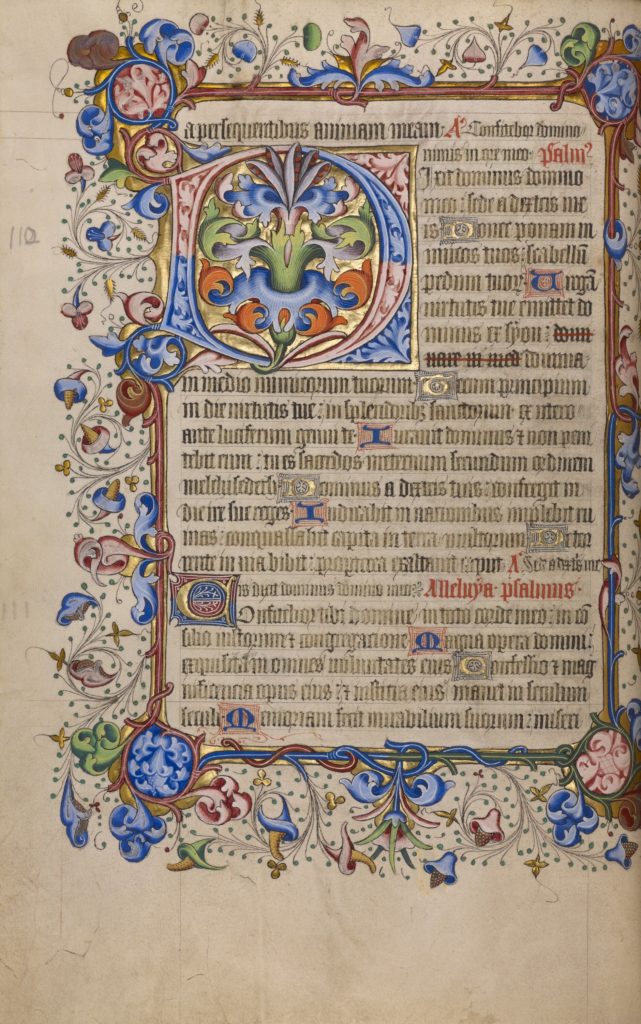First in a series on the Book of Psalms.
No portion of Scripture is so familiar to Catholics as the Book of Psalms. It’s the only book of the Bible that is read at every Mass; and the responsorial psalm is the only Scripture reading of the Mass that the congregation recites along with the lector, cantor, or priest.
It’s likely, too, that on any given Sunday, any given Catholic will sing a hymn adapted from the psalms. From “O God, Our Help in Ages Past” and “Bringing in the Sheaves” to “Sing a New Song” and “On Eagles’ Wings,” the psalms dominate our hymnals.
It’s no wonder, then, that the lines of these ancient Hebrew poems come so readily to mind.
“The Lord is my shepherd, I shall not want” (23:1).
“O Taste and see that the Lord is good” (34:8).
“Out of the mouths of babes …” (8:2).
“Keep me as the apple of your eye” (17:8).
“The Lord is my light and my salvation” (27:1).
“Make a joyful noise to the Lord” (98:7).
“Teach us to number our days” (90:12).
“Deep calls to deep” (42:7).
The list could run on for pages. And this is hardly a modern phenomenon. For all of Christian history, the Psalms have provided the most quoted and quotable passages of Scripture. The Psalter is, by far, the Old Testament book quoted most frequently in the New Testament. It is the Old Testament book most contemplated by the Fathers of the Church. From those earliest days, the psalms have filled the days of monks and nuns. In the ancient Church, there were monasteries given to perpetual recitation of the Psalms, round the clock, all year long. Down to this day, cloistered communities still recite all 150 Psalms. The pace varies from East to West. The solitaries of the Egyptian desert, I’m told, recite the entire Psalter every single day!
So no one could credibly claim that the psalms have been ignored in the life of the Church. Nor will I. But I do believe that the psalms have been underappreciated, even where they’ve been most diligently read or chanted.
The problem — and it’s a good problem to have — comes from our delight in each individual psalm. For each and every one of the psalms is a unique poetic gem. Each psalm gleams with its own insight, its own manner of expression. Each psalm can stand on its own literary merits.
Yet I maintain, with a growing number of scholars, that we can’t fully appreciate these gems unless we see them in their intended setting — a setting intended by their human authors, their human anthologists, and by their divine Author. We need to see the structural unity of the entire Psalter, the narrative thread that runs from psalm 1 to 150.
Over the next several issues, I intend to take up such a study, and I hope you’ll join me. Let’s shake up the Psalter and sing a song that’s ever new.

